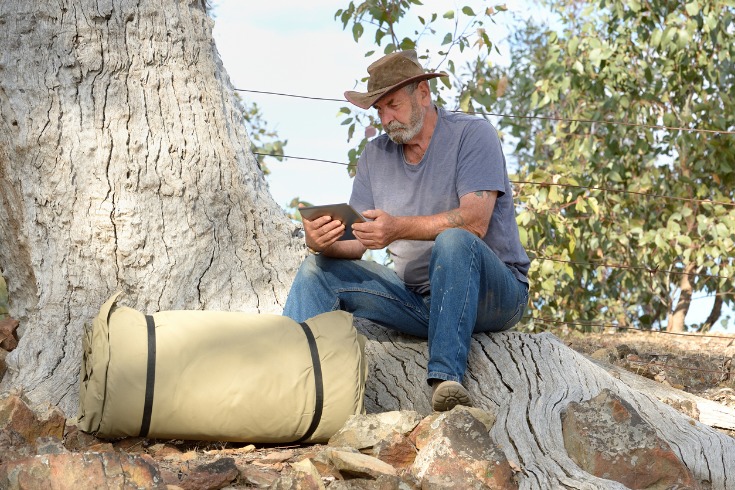
Living in rural Australia can have its challenges. There are sacrifices you make when you’re not within a short drive of all the services that a big city has to offer - though access to quality mental health services need not be one of them.
Making a living off the land can bring with it difficulties that city dwellers don’t experience. There are factors that have a detrimental impact on farmers which they have no control over, such as floods, droughts, pests, and poor produce prices. For those living in remote country towns, they often struggle with unemployment, loneliness, boredom, long distances, homelessness, risky drinking and illicit drug use.
According to the National Rural Health Alliance, the rates of mental illness is similar across the nation at around 20%, but rates of self harm and suicide increase with remoteness. In 2015-16, there were 482 Medicare Benefits Scheme (MBS) funded mental health encounters per 1,000 people in major cities, compared to 382 per 1,000 people in rural areas and just 108 in remote areas. In 2015, there were fewer mental health workers in rural areas of Australia compared to the major cities with 36% fewer psychiatrists, 78% fewer mental health nurses and 57% fewer psychologists in rural and regional areas.
Access to Mental Health Services
Due to the pandemic, even people living in cities are reporting some of the longest wait times ever experienced for in-person appointments with mental health practitioners. Whether you live 10 minutes or 10 hours away from providers, it can be difficult to secure an appointment. All Australians are turning to telehealth appointments and telephone helplines for faster, easy access to mental health services.
Telephone Helplines
People across Australia use mental health telephone services, whether they live in the city or country. Many people like the anonymity that a telephone provides. The counsellor can’t see them and they can’t see the counsellor. Some feel more at ease opening up about their feelings when they’re in the comfort of their own home. Australia’s telephone mental health services are taking far more calls than they were pre-pandemic. There are a number of telephone helpline services available to Australians, including:
Lifeline - 13 11 14 (crisis, suicide and emotional support, provided by voluteers)
Beyondblue - 1300 224 636 (information and support)
Suicide Call Back Service - 1300 659 467 (phone and on-line counselling for suicide realted issues, provided by counsellors, social workers, or psychololgists)
Men’s Line Australia - 1300 789 305 (mental health, anger management, family violence, addiction, relationship, stress and wellbeing, provide by counsellors)
Panda - 1300 726 306 (supports women, men and families affected by pregnancy related depression)
QLife - 1800 184 527 (LGBTQI+ and gender, identity, bodies and relationship related issues
Butterfly Foundation - 1800 334 673 (supports for eating disorder and body image issues)
Telehealth
The pandemic has seen more health professionals provide telehealth services than were being provided previously. Counsellors and psychologists who only conducted face to face appointments before the pandemic may have even tried telehealth appointments during lockdowns and realised that they can be just as effective.
Employee Assistance Programs
If you work for a medium or large organisation, it’s likely that your employer will have a provider of employee assistance programs (or EAPs). You can make an appointment with a psychologist or counsellor for support and advice.
General Practitioner
Country residents are less likely to access mental health assistance through a GP than those that live in cities for a variety of reasons, including:
-
Their nearest GP being a long drive away.
-
Having a long wait time when booking appointments with their GP.
-
Knowing their GP well and not being comfortable enough to discuss their mental health.
-
Worrying that word will get around town about their mental illness
Where distance isn’t a problem, some rural residents will visit a GP in a nearby town where they know fewer people and may feel more comfortable discussing their mental health. There is also the option of looking for a GP who is based somewhere else in Australia and offers telehealth consultations.
Don’t Let Distance Be an Excuse
Living in rural or remote Australia doesn’t mean you should be disadvantaged in accessing mental health services. Gaining access to mental health providers can be easier than getting appointments with physical health providers in many instances. Most mental health services can be provided in the comfort of your own home via telephone or a telehealth consultation. Prioritise your mental health and make the call today.